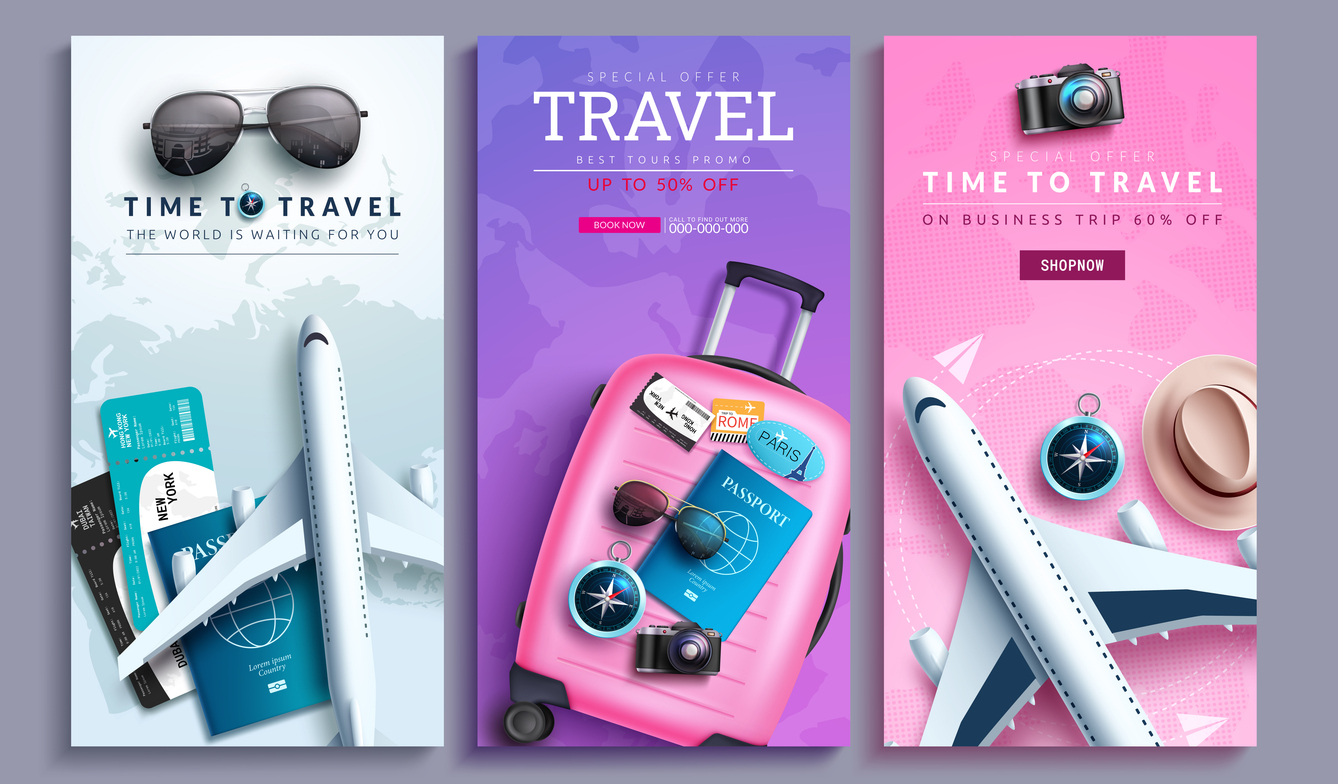How is AI Transforming the Travel Industry?
Artificial intelligence (AI) is reshaping the way we live, and the travel industry is no exception. Things like dynamic pricing and AI-powered chatbots are helping customers source their ideal trip at the best price, while boosting travel company efficiency by lowering the number of empty seats and rooms.
AI helps deliver smarter, faster and more personalized experiences. The technology is rapidly evolving, transforming how we plan, book and enjoy trips, benefiting both travelers and travel businesses. Let’s take an in-depth look at AI in the travel industry today and explore its potential impact in the future.
AI for Personalized Travel Planning

Over recent years, the way we travel has been undergoing a seismic shift from ‘one-size-fits-all’ travel packages to unique, tailored experiences. AI technology is revolutionary in driving this change through its powerful data analysis capability. AI analyses browsing behavior, booking history and even social media interests to produce individual travel options. Travelers benefit from customized experiences, all within budget and instantly sourced. And travel providers benefit from happy customers – increasing client loyalty and revenue.
For Travel Businesses
- Increases customer loyalty by offering memorable, personalized journeys.
- Boosts associated sales of activities and excursions.
- Creates customer profiles for targeted marketing.
For Travelers
- Drills down on travel options, reducing search and book time.
- Creates tailored, unique experiences.
- Smart booking allows for budget parameters.
- Offers real-time booking amendments.
AI Chatbots Helping Travel Agencies

Fueled by an increasing demand for instant answers and personalized recommendations, AI chatbots and virtual assistants are having a significant impact on the travel industry. AI chatbots allow travel agencies to offer 24/7 customer service, responding instantly to questions about flights, hotels, and other travel-related queries. Instead of waiting for agents to complete standard information requests or booking amendments, customers can get an instant response, while agents can focus on more complex travel queries. In many cases, this AI service produces happy, stress-free travelers, and at a much-reduced cost to the travel agent. And the benefit of chatbots doesn’t end there – AI chatbots can instantly interact in multiple languages.
AI chatbots offer efficient support to travel agents and valuable assistance to travelers, all the while collecting customer insights to analyze trends and demand.
Dynamic Pricing Driving Efficiency

Dynamic pricing is proving revolutionary for those in the tourism sector. Powered by AI, dynamic pricing algorithms analyze vast amounts of data including historical booking patterns, competitor pricing and consumer data to forecast future demand. The benefits of dynamic pricing are felt by consumers and businesses alike. The ability of travel providers to adjust their pricing strategies in response to market changes means prices are set according to what consumers are willing to pay, leading to fewer empty seats and hotel rooms.
Cruise price tracking is popular among cruise travelers, allowing them to get the best deals and even request a new price for their trip after they have booked. Price tracking monitors dynamic pricing and price fluctuations in the market. Traveltek’s API integration allows for real-time cruise booking data, which is fully accessible to most price tracking tools.
AI Itinerary Planning
We’ve all been there, tirelessly searching places, times and availability to create the perfect itinerary for our getaway trip. Logistics alone can be a headache, but adding budget and availability constraints can make itinerary planning a nightmare. AI-driven itinerary planning creates customized travel plans effortlessly by analyzing preferences, schedule and cost.
AI in itinerary planning is more than just a data analysis tool. By analyzing reviews and local data it can suggest personalized recommendations, uncover hidden gems, and propose activities, restaurants and experiences for an unforgettable trip, based on individual preferences.
The ability of AI to manage large amounts of data makes itinerary planning quick and straightforward.
The Future of AI

AI is already embedded into our daily lives, and for the travel industry, its impact is rapidly improving processes and planning. AI is evolving into the role of a personal travel assistant. Rather than just suggesting options, the technology is learning our style and preferences, proactively creating entire itineraries independently…and before it is asked. Its assistance will extend to automatically rebooking flights if a delay occurs, adapting daily schedules from real-time flight information. Airport security will improve as AI powers facial recognition and fraud detection, meaning faster check-in and fewer disruptions.
Agentic AI is also on the horizon. Agentic AI is an artificial intelligence system designed to operate autonomously, making decisions and carrying out tasks with little or no human interaction. In travel booking, agentic AI will populate travel booking data and communicate with its own AI agents to plan travel solutions.
AI travel agent hyper-personalization is poised to redefine the search and booking process. By using detailed personal information gathered from loyalty programs, credit card benefits and insurance coverage, AI will be able to tailor detailed, highly personalized travel plans. AI intelligent agents will anticipate travel needs and decide how to proceed. This complementary nature of AI together with experienced human expertise will deliver exceptional travel memories.
Operational Efficiency and Sustainable Travel
Sustainability is critical for the travel industry; if destinations aren’t worth visiting, travelers won’t go.
Through real-time data analysis, AI facilitates route optimization and green transport options. It can optimize flight paths, predict maintenance and manage energy supplies. Its powerful data forecasting means better demand planning, which can help reduce the environmental impact of over-tourism. And it can help with resource planning to minimize waste and improve efficiency in hotels and airlines. AI can certainly help promote a more sustainable travel industry, also measuring the carbon footprint of hotels and other travel partners to encourage a greener focus.
Frequently Asked Questions
Will travel agents be replaced by AI?
AI is a tool that travel agents can exploit efficiently to improve their business. It is not a replacement but enhances their business if used strategically to power data-driven decision-making and routine tasks.
How does dynamic pricing impact customers?
Through real-time price adjustments reflecting supply and demand, consumers benefit from market prices that mirror what they are willing to pay. Businesses benefit from a higher, more efficient revenue stream and fewer empty rooms and seats.
What does AI mean for traveler safety and security?
AI is playing a critical role in traveler security. Airport security is being improved through biometric systems. Online booking scams are being infiltrated through AI technology, and predictive maintenance monitors equipment for reduced breakdowns and accidents. In hotels, keyless entry, surveillance and guest verification improve safety. Even weather alerts and health risks can be monitored through AI, providing travelers with real-time notifications.




